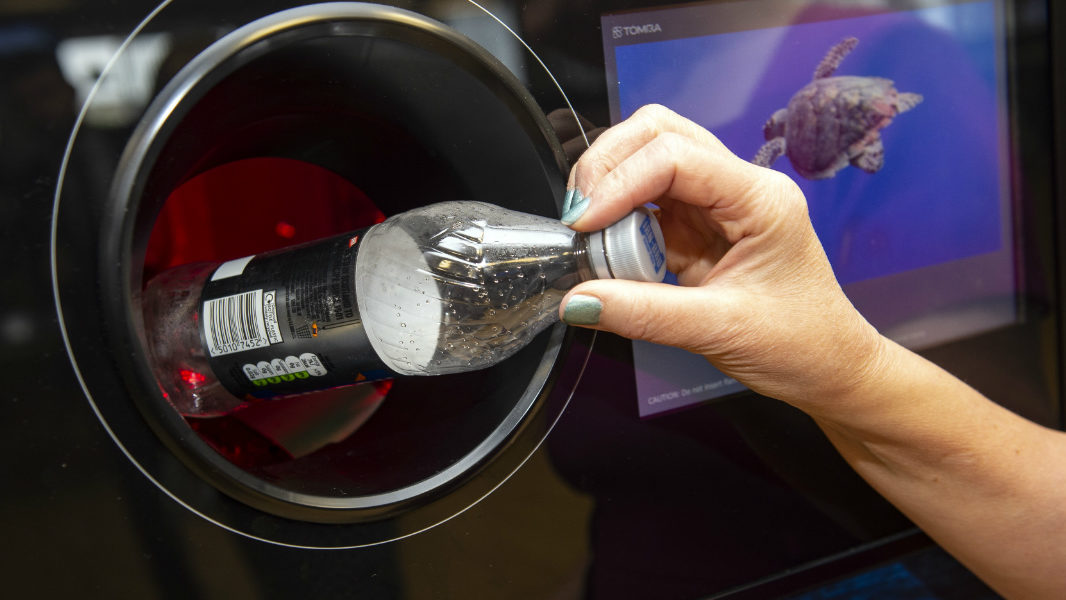No major drinks supplier believes store size is an adequate reason for a retailer to be exempt from the deposit return scheme (DRS) in England or Wales.
Freedom of information requests (FOI) by Better Retailing revealed the proposals of 13 suppliers and supermarkets made to the Department for Environment Food & Rural Affairs (Defra) consultation on DRS last year.
Submissions were made by Suntory Beverage & Food GB&I (SBF GB&I), Nestlé, Danone, Heineken, Coca-Cola Europacific Partners (CCEP), Britvic, PespiCo, Diageo and AB InBev, alongside supermarkets Tesco, Co-op, Sainsbury’s and Asda.
A DRS isn’t expected to be implemented in England, Wales and Northern Ireland until late 2024 at the earliest – six years after the government announced it.
Wales pushing for support for local stores in gov’t retail strategy
Exemptions
When asked on what grounds a retailer should be granted an exemption, every respondent proposed breach of safety, as well as close proximity to another return point, apart from Co-op.
Scotland, which is spearheading the scheme and preparing for a 16 August 2023 rollout, faced criticism last year for excluding store size as a valid reason.
Store owners expressed concern over this being excluded due to a majority of stores being too small to house a reverse vending machine (RVM), or take bottles manually behind the counter without it causing disruption.
However, each participant opted for an ‘all-in’ scheme for drinks containers, similar to Scotland, as opposed to ‘on-the-go’ after stating that drinks aren’t always consumed away from the home. In addition, all parties agreed that an aligned scheme was necessary across the UK to potentially avoid fragmenting the drinks market, and most identified this as the biggest vulnerability in the DRS right now.
DRS update: Scottish retailers given 20 months to prepare for bottle return scheme
Glass
The crushing of glass by RVMs remained the most debated topic among respondents. The process has been approved for use in the Scottish scheme, despite criticism from stores over safety and hygiene.
Diageo and AB InBev remained firmly opposed, suggesting bottles be returned whole. As an alternative, Heineken and Tesco called for RVMs to use ‘soft drop’ capabilities, claiming machines that crush glass will “lead to poorer residual value”.
CCEP, SBF GB&I, PepsiCo and Co-op said, if included, costs would be likely to increase, and this should be reflected in the producer fee.
Britvic was the only supplier to say it was fully supportive of the inclusion of glass being crushed.
Scotland confirms DRS August 2023 go-live date
Handling fee
Better Retailing understands accounting firm PwC has been hired by scheme administrator Circularity Scotland Limited to analyse the commission payable to participating stores. In the document provided by Defra, it outlined the retailer will receive a handling fee calculated by the Deposit Management Organisation (DMO) to compensate them for any costs incurred in hosting a return point.
It states the fee paid will be based on the following criteria, which will be set out in legislation.
This includes the cost of purchase, lease, maintenance or upkeep of any collection/storage infrastructure, including vehicles used for collections; costs of materials for collection/storage of containers; space requirements of return point; staffing; and utility costs of operating the return point.
However, Nestlé, Sainsbury’s and Asda said they disagreed with this calculation. Sainsbury’s said it should be “subject to transparent negotiations between retailers and the DMO to reflect actual costs of hosting a return point”, while Asda had concerns over it not being “cost neutral” to retailers and producers.
Of those in favour, SBF GB&I, CCEP and AB InBev recommended independent third-party input, while Tesco pushed for studies with handlers, and Co-op requested that consumables to operate DRS – such as paper and ink – are covered in the fee.
Regulations signed for a Deposit Return Scheme in Ireland
Retailer responsibility
The DMO will be responsible for reporting on the number of containers collected in each part of the UK. This will require data on the number of containers placed on the market in England, Wales and Northern Ireland.
Diageo and AB InBev proposed the onus be with retailers, whereas Nestlé, Danone, Heineken, CCEP, PepsiCo, Tesco, Co-op and Asda wanted responsibility shared by store owners and producer/importers. Sainsbury’s was the only respondent to not give any responsibility to the retailer.
EXCLUSIVE: Jisp explores potential digital DRS solution
Timeline
Covid-19 played a role in delaying the Scottish DRS twice, and when asked whether the pandemic had affected their view for its implementation in England and Wales, Danone, PepsiCo and Coop were the only companies that said it hadn’t.
SBF GB&I urged the government to work with affected sectors to ensure an agreed timeline.
Respondents remained conflicted about how quickly the scheme should be implemented once the DMO had been appointed.
Danone and CCEP agreed with the suggested 18 months, but SBF GB&I, Britvic and PepsiCo recommended 18-24 months. However, the majority opted for two years, including Asda, Sainsbury’s, Co-op, Tesco, AB InBev and Heineken.




Comments
This article doesn't have any comments yet, be the first!